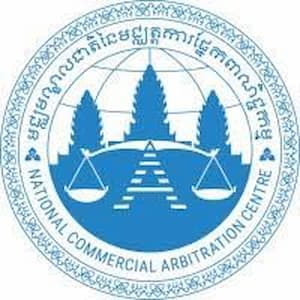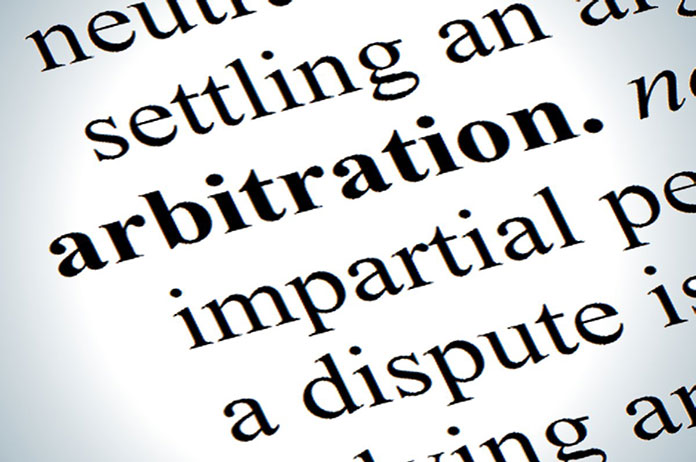Understanding Mediation & Arbitration in Cambodia

Mediation and arbitration are a part of conducting business in Cambodia. Its also been recognised by legal firms and the National Commercial Arbitration Centre (NCAC) that they are on the rise in the Kingdom - and can be viewed as a cost-effective and efficient means to resolve business disputes.
National Commercial Arbitration Centre (NCAC) - Cambodia
The NCAC was established by Law on Commercial Arbitration on 5th May 2006. The National Commercial Arbitration Centre has successfully completed the arbitration in 17 commercial dispute cases by May 2022, reported the Khmer Times. The NCAC currently consists of more than 60 arbitrators of diverse nationalities across its panels. In total, the NCAC had received 29 cases of commercial disputes involving more than $86 million since its establishment. Businesspeople from Japan, Singapore, Malaysia, Hong Kong, China, Cambodia, and Bermuda have made cases known to the NCAC.

The disputes were in the following sectors:
- 8 - Real Estate
- 8 - Trade
- 7 - Banking and Finance
- 4 - Construction
- 2 - Corporate
Math Fanita, acting secretary-general of NCAC added that “We have disseminated information to many businesses who are interested to submit disputes to us. I think more cases will come soon as some of the parties have engaged lawyers to study the disputes." The article also states that the International Chamber of Commerce (ICC) records indicate "that an average mediation process lasts four months from the date of the request for mediation to the end of the proceeding" but the actual meetings with the mediators last just only for 1-2 days. In 2020, the NCAC was reviewing Cambodian arbitration rules - see more here.
Mediation vs. Arbitration: What's the Difference?
The main difference between mediation and arbitration is the process used to resolve the conflict. Importantly, both options find a resolution outside of the traditional court process. According to findlaw.com the difference between the two can be explained as:
- Mediation: a non-binding process generally conducted with a single mediator who does not judge the case but facilitates discussion and resolution of the dispute.
- Arbitration: typically a binding process that replaces the full court trial process with multiple chosen people to serve as judges in finding/ruling on a solution.

FAQ on Mediation in Southeast Asia (Cambodia) - DFDL
DFDL, a leading legal firm operating in Cambodia and across Southeast Asia released its FAQ on Mediation in Southeast Asia publication in May 2022 in partnership with Harry Elias (conflict-resolution experts) "to provide the first-ever comparative review of mediation practices across the region" which will better help businesses and individuals understand mediation.

Mediation is rapidly becoming an efficient and cost-effective means of resolving disputes in Southeast Asia says DFDL. The firm added that "mediation is taking root in each regional jurisdiction, providing a viable solution for parties to manage and resolve their disputes outside the conventional frameworks of litigation and as an alternative to arbitration."
On page 6 of the FAQ on Mediation in Southeast Asia publication, which focuses purely on Cambodia, DFDL reports that currently there are no qualifications required by law for a mediator in Cambodia and the country is not a party to the Singapore Mediation Convention.
Some of the key points DFDL raises about mediation in Cambodia are:
What are the laws, rules and regulations that govern mediation in Cambodia?
The Act amending the Civil Procedure Code (No.32) B.E. 2563 ("Act") was published in the Royal Gazette on 8 September 2020 and came into force on 7 November 2020.
The Act introduced a legal provision allowing a party to a dispute to request in-court civil mediation even before a complaint is filed with the Court.
What are the different types of mediation in Cambodia?
Out-of-court, private and court-supervised mediation both exist in Cambodia says DFDL.
In which areas of law, and for which types of disputes, has mediation traditionally been used & in which areas is it expected to increase?
Mediation is expected to grow in many areas of civil disputes, particularly commercial in Cambodia. Even if mediation has traditionally been used to solve disputes in a non-structured way in small communities, Cambodia has yet to establish and nurture a culture of mediation across the country's professionals, particularly in the legal profession.
What is the Singapore Mediation Centre?
Singapore Mediation Centre (SMC) is Singapore’s provider of alternative dispute resolution services.
- Mediation facilitates the maintaining of business relationships and will be enforceable in the courts of the countries that have ratified the SMC (Cambodia has not yet party to the Singapore Mediation Centre).
- While more countries will need to become signatories to give the SMC more force, it is a positive development in the support of mediation as a process.
In conclusion, some of the benefits of mediation in Cambodia according to DFDL are:
- Mediation allows parties to resolve their disputes in a non-adversarial manner.
- It allows parties to autonomously reach amicable settlements based on their interests in a timely and cost-efficient way.
- Mediation is fast, confidential and pacifies commercial relations.
- In business litigation, mediation allows the continuation of projects and the preservation of business relationships and often even gives rise to more solid and ambitious contractual relationships.
We would like to thank DFDL for the publication of the FAQ on Mediation in Southeast Asia which can be downloaded here. B2B Cambodia always suggests you seek qualified professionals for legal matters.